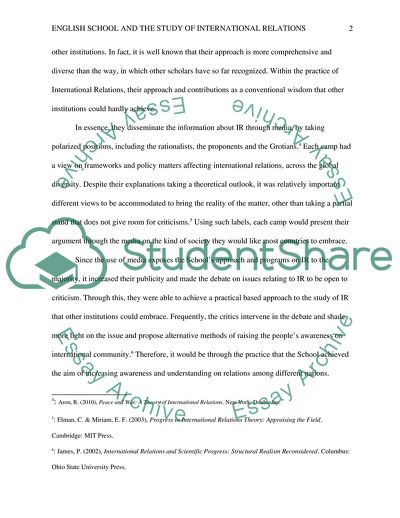Cite this document
(English School's Contribution to the Study of International Relations Case Example | Topics and Well Written Essays - 1250 words, n.d.)
English School's Contribution to the Study of International Relations Case Example | Topics and Well Written Essays - 1250 words. https://studentshare.org/social-science/1763030-assess-the-contribution-to-the-study-of-international-relations-made-by-the-english-school
English School's Contribution to the Study of International Relations Case Example | Topics and Well Written Essays - 1250 words. https://studentshare.org/social-science/1763030-assess-the-contribution-to-the-study-of-international-relations-made-by-the-english-school
(English School'S Contribution to the Study of International Relations Case Example | Topics and Well Written Essays - 1250 Words)
English School'S Contribution to the Study of International Relations Case Example | Topics and Well Written Essays - 1250 Words. https://studentshare.org/social-science/1763030-assess-the-contribution-to-the-study-of-international-relations-made-by-the-english-school.
English School'S Contribution to the Study of International Relations Case Example | Topics and Well Written Essays - 1250 Words. https://studentshare.org/social-science/1763030-assess-the-contribution-to-the-study-of-international-relations-made-by-the-english-school.
“English School'S Contribution to the Study of International Relations Case Example | Topics and Well Written Essays - 1250 Words”. https://studentshare.org/social-science/1763030-assess-the-contribution-to-the-study-of-international-relations-made-by-the-english-school.


